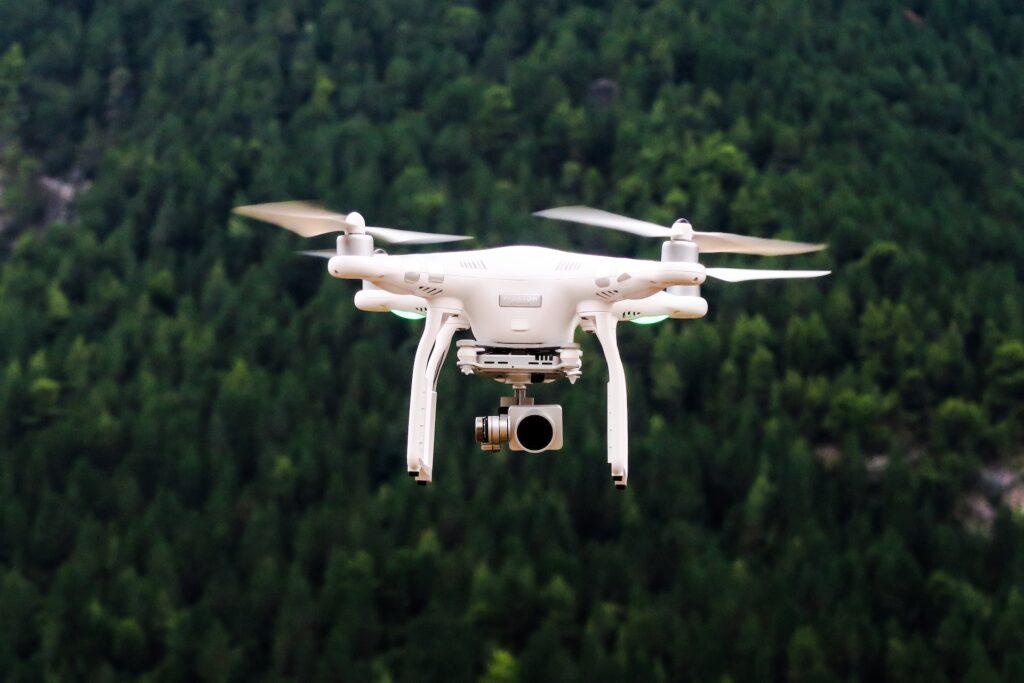New Zealand police have started training AI drones to detect illegal cannabis crops after aerial searches were initially halted in 2021 due to priorities shifting toward more harmful drugs. Concerns have been raised over AI drones infringing on privacy and the potential impact on patients who rely on cannabis for medicinal purposes, leading to questions over police resource allocations.
AI Drones to Start Hunting Out Illegal Cannabis Crops?


In New Zealand, the police have been utilizing a medical cannabis farm for training drones equipped with artificial intelligence (AI) to later identify illegal cannabis cultivations in other locations.
The police said that the training exercise at the farm on the South Island, which had the Ministry of Health’s consent for cannabis cultivation, aimed to check whether cannabis could be “detected by a specialized camera system.”
AI drones are commonly used by the police for a wide range of activities, said a spokesperson.
For more news like this, download our free cannabis news app.
Utilizing AI Dones for Police Operations
The police primarily use remotely piloted aerial systems (RPAS), that is, drones, for photographing crime scenes and road accidents, as well as quickly locating people in hard-to-reach places during rescue operations, according to a New Zealand police spokesperson.
“All RPAS include AI features such as object recognition, object tracking, and obstacle avoidance to aid in their safe operation,” the spokesperson added.
The police also recently conducted a training exercise with drones at a cannabis farm on the South Island of New Zealand, which had the Ministry of Health’s consent for cannabis cultivation. This exercise was to consider whether cannabis could be detected by a specialized camera system mounted to drones.
Shifting Focus in Police Resources
In January 2021, the police decided to cease using drones for aerial searches for illegal cannabis plantations, citing a lack of interest from the leaders of 12 police districts.
“Due to the increased harm in many communities caused by other drugs, especially methamphetamine, the annual aerial cannabis operation at the national level is no longer the most appropriate use of police resources,” she said.
A year later, the police retracted this decision and resumed searches with aerial drones nationwide, asserting that the police would still focus on illegal cannabis cultivations.
Concerns Over the Use of AI Drones
Sarah Helm, the executive director at the NZ Drug Foundation, expressed that the idea of using AI drones to search for illegal cannabis cultivation in the forest or on private properties could be concerning for those who buy cannabis for medicinal purposes on the black market due to difficulties in obtaining legal prescriptions.
“Patients still largely have to rely on illegal cannabis due to high costs and difficult accessibility of medical cannabis on prescription… so cannabis patients, I imagine, could be very afraid hearing this news, fearing the possibility of access to essential medicines.”
“I think the public would be concerned about the waste of police resources on chasing cannabis cultivations in the context of real national concerns about crime and justice and would see cannabis as an issue that is not a priority.
The police did not disclose how much the drone training cost, claiming that this information could only be obtained based on a request under the Public Information Act.
—
(Featured image by Jason Blackeye via Unsplash)
DISCLAIMER: This article was written by a third-party contributor and does not reflect the opinion of Hemp.im, its management, staff, or its associates. Please review our disclaimer for more information.
This article may include forward-looking statements. These forward-looking statements generally are identified by the words “believe,” “project,” “estimate,” “become,” “plan,” “will,” and similar expressions. These forward-looking statements involve known and unknown risks as well as uncertainties, including those discussed in the following cautionary statements and elsewhere in this article and on this site. Although the company may believe that its expectations are based on reasonable assumptions, the actual results that the company may achieve may differ materially from any forward-looking statements, which reflect the opinions of the management of the company only as of the date hereof. Additionally, please make sure to read these important disclosures.
First published in Fakty Konopne, a third-party contributor translated and adapted the article from the original. In case of discrepancy, the original will prevail.
Although we made reasonable efforts to provide accurate translations, some parts may be incorrect. Hemp.im assumes no responsibility for errors, omissions or ambiguities in the translations provided on this website. Any person or entity relying on translated content does so at their own risk. Hemp.im is not responsible for losses caused by such reliance on the accuracy or reliability of translated information. If you wish to report an error or inaccuracy in the translation, we encourage you to contact us.



Comments are closed for this post.